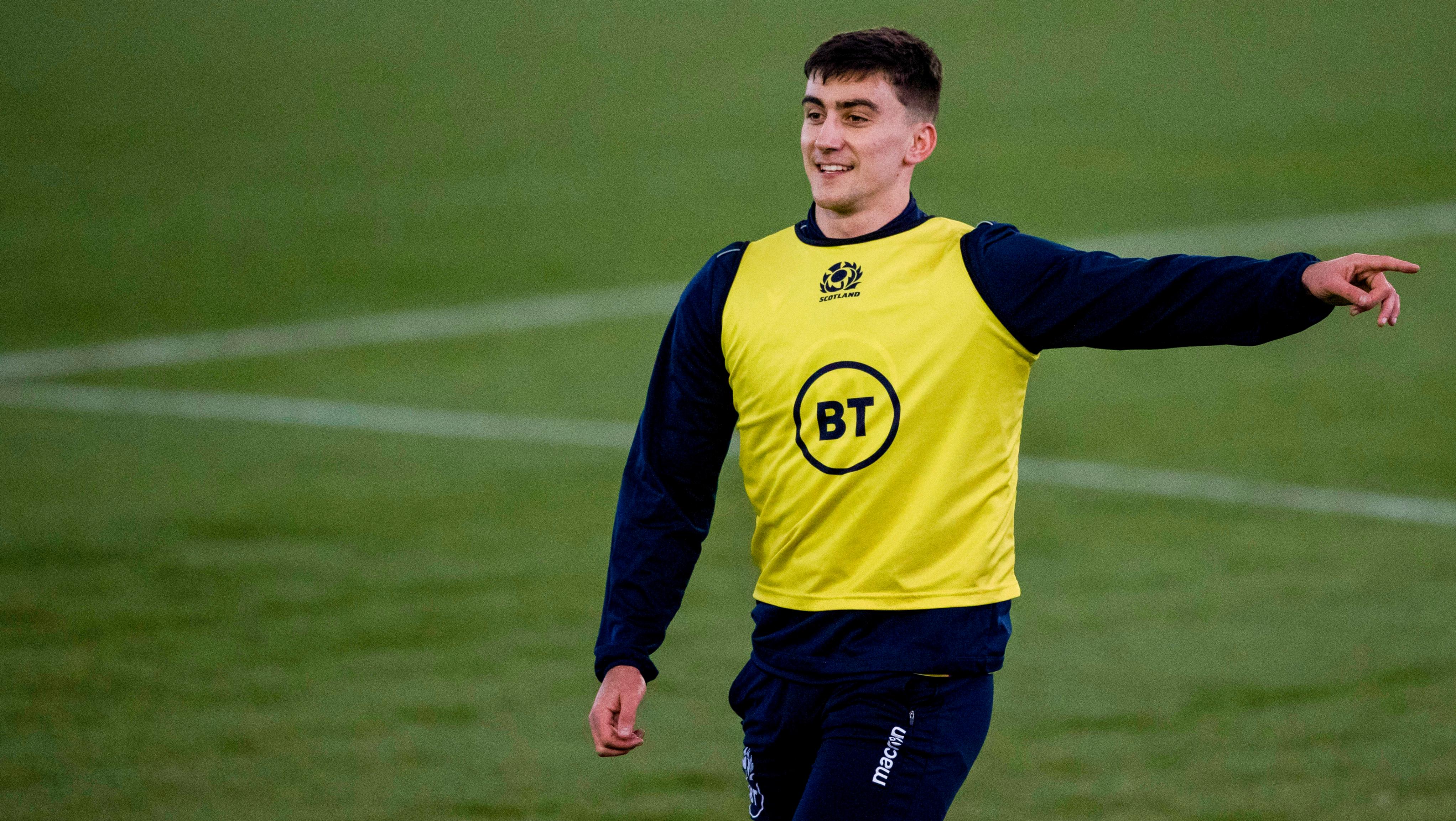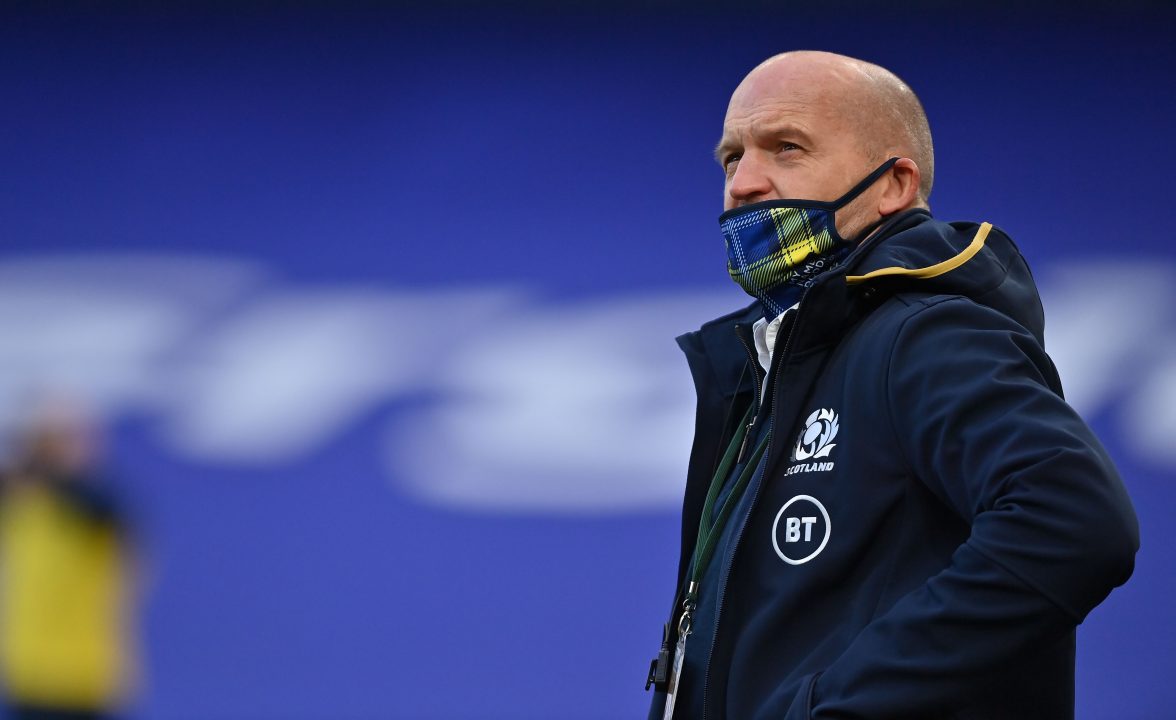Gregor Townsend’s mission statement for 2020 was to make Scotland a “nightmare” to play against and his defence duly became a unit to fear for opposing sides.
In 2021 Townsend needs to find a way to make his attack strike just as much trepidation into the hearts of Scotland’s Six Nations rivals.
Last year’s championship saw the Scots concede just 59 points – comfortably their finest defensive display of the Six Nations era and 66 points fewer than their 2019 record.
Assistant coach Steve Tandy overhauled the defensive system that was in-part to blame for the early World Cup exit in Japan and a burgeoning generation of players stepped up at test level.
Zander Fagerson, Rory Sutherland, Scott Cummings and Jamie Ritchie shone in the pack. Chris Harris and Adam Hastings graduated to test match regulars among the backs.
But this solidity came at the price of an attacking edge that had previously been the hallmark of Townsend’s tenure.
The head coach cultivated an identity that Scotland would play the “fastest” brand of rugby in the world but the swing to a pragmatic approach has jarred with fans of the loose, unstructured running rugby that won the team a lot of admirers.
Defence, set piece and a more regular kicking game have been the bedrock of Scotland’s shift in emphasis. To make any further progress Townsend now needs his attack to flourish once more.
The return of Finn Russell will help a great deal, but the mercurial Racing 92 fly-half cannot spark the team on his own.
 SNS Group
SNS GroupRussell has a new inside centre partner in 21-year-old Cam Redpath and the son of former national team captain Bryan has been winning rave reviews for his form at Bath.
Together they will need a system to release the wealth of backfield talent at Scotland’s disposal.
Stuart Hogg and Duhan van der Merwe are elite strike runners capable of carving open any defence – but only if the plan is right.
Last year showed us that Scotland are squarely fourth in the northern hemisphere pecking order – behind Ireland and with France and England duking it out for first place.
To show growth Townsend’s men have to aim to leapfrog Andy Farrell’s Ireland into third place, meaning that three wins out of five will be the minimum expectation.
While the team goes about trying to give England, Wales, France, Ireland and Italy some nightmares on the park, the nightmare off it looms large.
The prospect of spectators at stadia has been ruled out for the first three rounds and the chance of seeing any fans attending the final six matches in March looks remote.
 SNS Group
SNS GroupThe scenario is sure to throw up some unusual results. One need only look to the professional leagues playing in various sports at the moment to see that the Covid era brings surprises on the field
In football’s Scottish Premiership and English Premier League there have been more away wins recorded than home wins. In rugby’s Pro 14, Top 14 and Gallagher Premiership results have also been less predictable.
The thought that the Six Nations title is all to play for is great news for the millions who will watch at home but the 2021 Six Nations is lessened for the absence of fans in cities and stadia.
Waking up this morning to the realisation that the spring will bring no spine-tingling moments like 67,000 belting out Flower of Scotland at Murrayfield is hard to process.
No skirl of the pipes on Rue François Miron outside the Auld Alliance Bar later this month. No Welsh lilts of ‘Delilah’ echoing through the Grassmarket on a Saturday night nor ‘The Fields of Athenry’ chorused along Roseburn before kick-off.
The annual invasion of travelling fans on Six Nations weekends may not be as pronounced as it was before live coverage became the wall-to-wall festival of televised rugby we can enjoy today; and before ticket prices soared in price beyond the means of many an ardent rugby fan.
But the noise and colour, the friendships and camaraderie built over decades of shared history remain the most important and defining features of this championship.
So we strap ourselves in hoping for seven weeks of thrilling televised entertainment.
That would at least take the edge off the fact that the Six Nations is just the latest of our sporting traditions to be dreadfully diminished by this pandemic.

 SNS Group
SNS Group

























